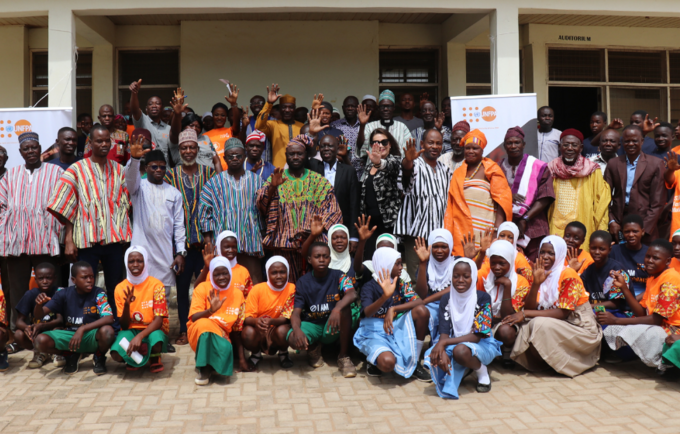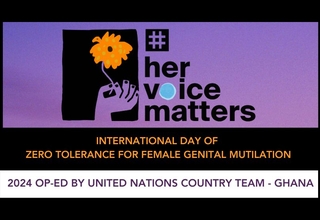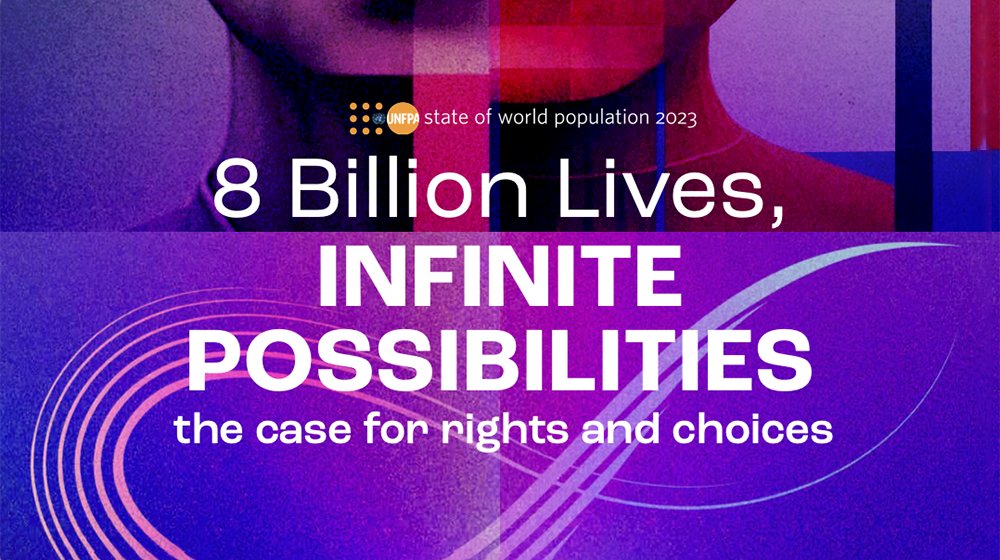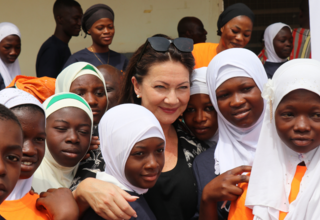According to estimates, 4.3 million girls across the world are at the risk of female genital mutilation (FGM). And every year on February 6, the world recognizes the need to end this inhumane practice that threatens the rights, dignity and wellbeing of victims who undergo FGM. In Ghana, although the practice has been outlawed, it continues clandestinely.
The COVID-19 pandemic also re-ignited the practice of FGM in a few areas in Ghana, particularly, the Upper Est region where some families were known to subject their daughters to FGM through cross-border movements to Burkina Faso and Togo which borders Ghana in the North-eastern part of the country.
This year’s International Day of Zero Tolerance for Female Genital Mutilation was held under the theme: “Partnership with Men and Boys to Transform Social and Gender Norms to End FGM”, which the UNFPA Ghana Country Office saw as an opportunity to hold an Intergenerational Dialogue between Traditional Leaders and young people, notable, men and boys who stood a chance to ensure an end to FGM given their ability to take many decisions at the household level mainly at the rural level.
Speaking at the ceremony which took place at the Assembly Hall of the Gbewaa College of Education in Pusiga, the UNFPA Country Representative, Dr. Wilfred Ochan noted that, ‘while there has been a significant decrease in the practice of FGM from previous years, it still continues and is deeply entrenched in certain cultures.’
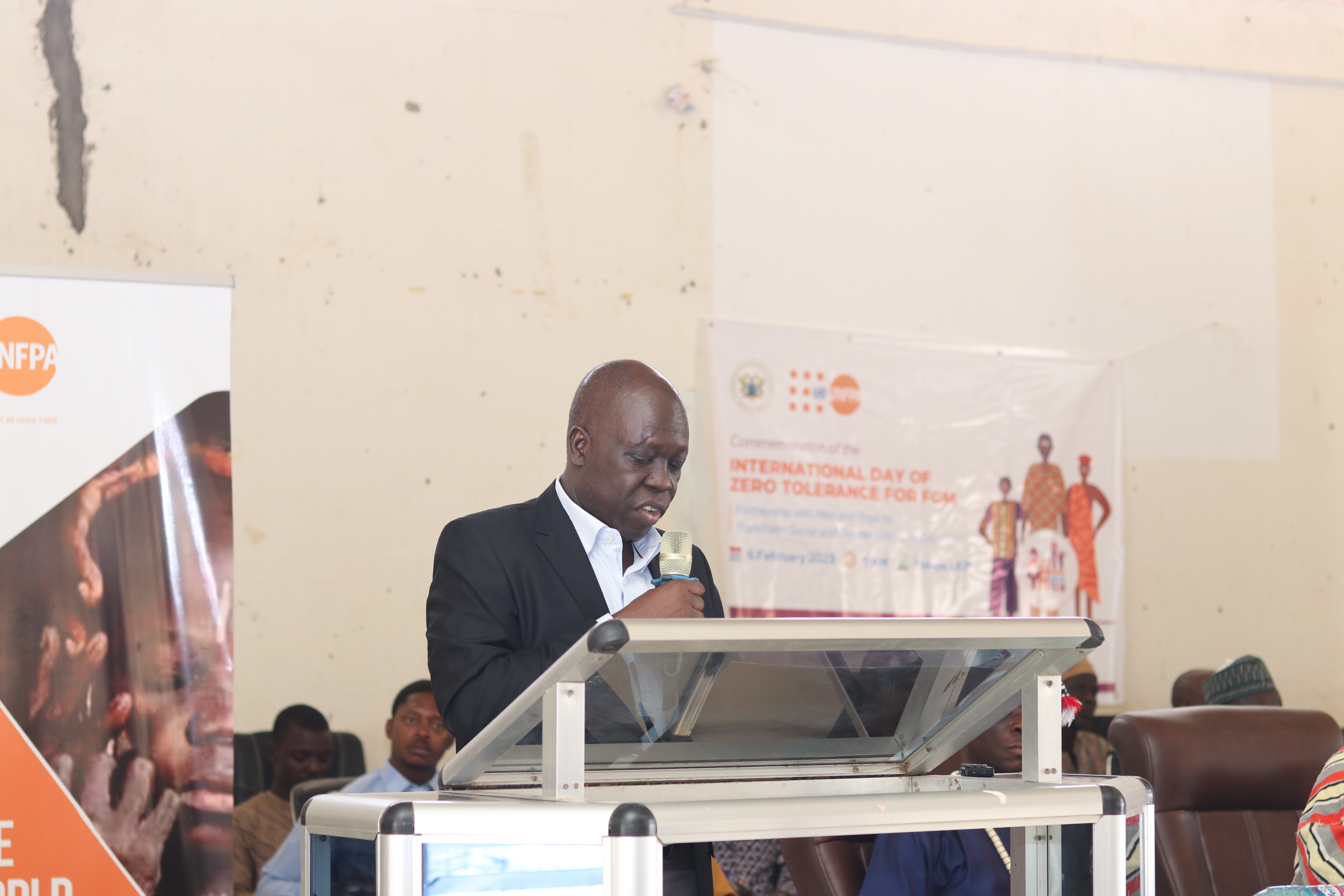
The UNFPA Country Representative, Dr. Wilfred Ochan making a statement during the observation of the International Day of Zero Tolerance for FGM.
Dr. Ochan referred to a 2019 study by the Navrongo Health Research Institute which revealed FGM prevalence levels of 82% and 62% respectively for Pusiga district and Bawku Municipal. Stakeholders present, including representatives from the Department of Gender of the Upper East Regional Coordinating Council, teachers, school pupils, chiefs and male advocates, were encouraged to work together to end FGM in Ghana.
The District Chief Executive of Pusiga District, Hon. Zubeiru Abdulai decried the practice of FGM in the area and called for concerted efforts to nip the harmful practice in the bud. Chiefs from various communities who gathered for the event pledged to protect girls from getting cut while calling on UNFPA to work with authorities in neighbouring communities in Burkina Faso and Togo to stop the practice.
The Ambassador of Norway to Ghana, Her Excellency Ingrid Mollestad joined in the observation of the International Day of Zero Tolerance for FGM and added her voice to advocate for an end to FGM and the empowerment of women and girls. The Government of Norway supports UNFPA globally to promote access to sexual and reproductive health services, end female genital mutilation, provide reproductive health education to young people as well as, eliminating sexual & gender-based violence.
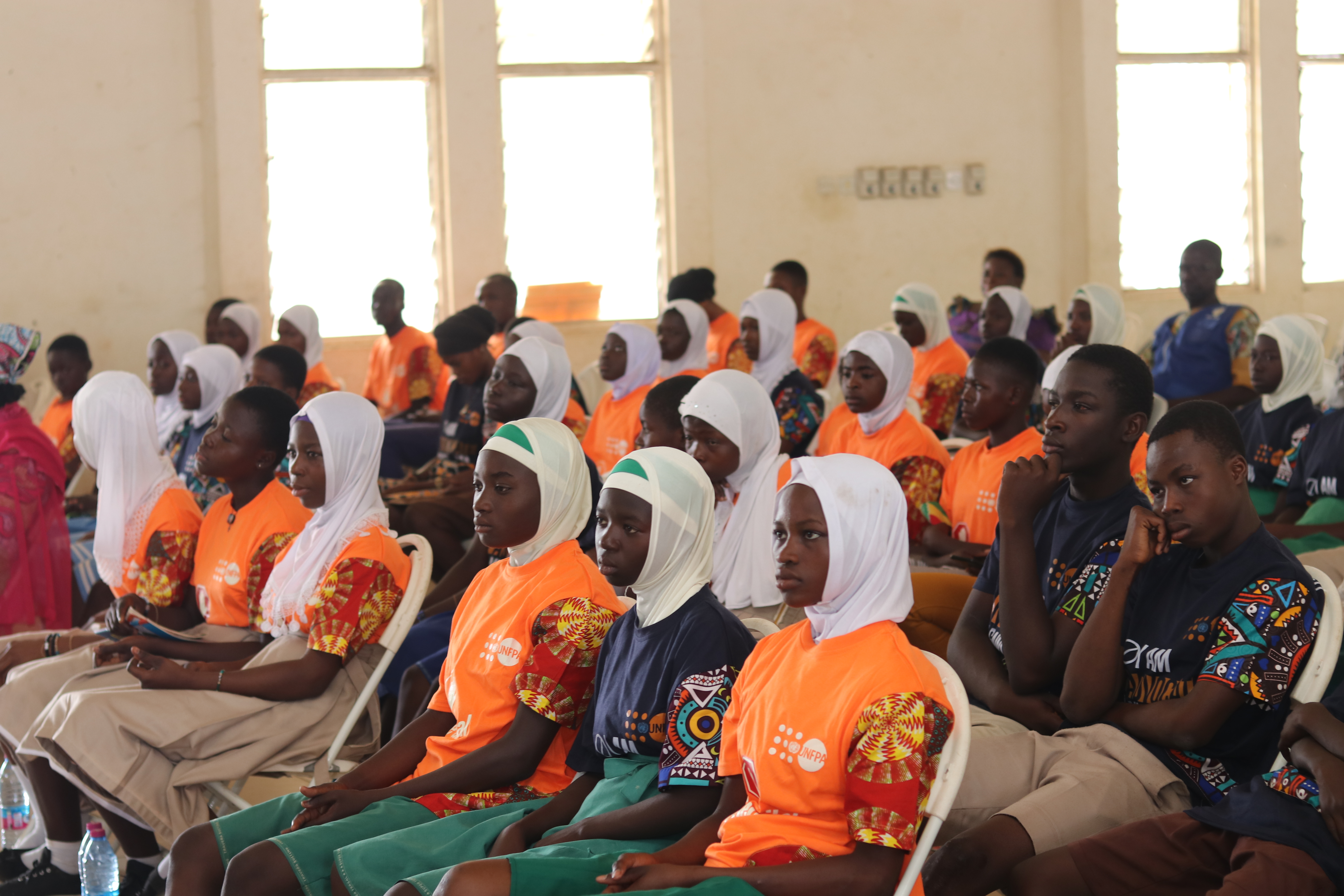
A cross-section of participants at the observation of the 2023 International Day of Zero Tolerance for FGM in Pusiga.
